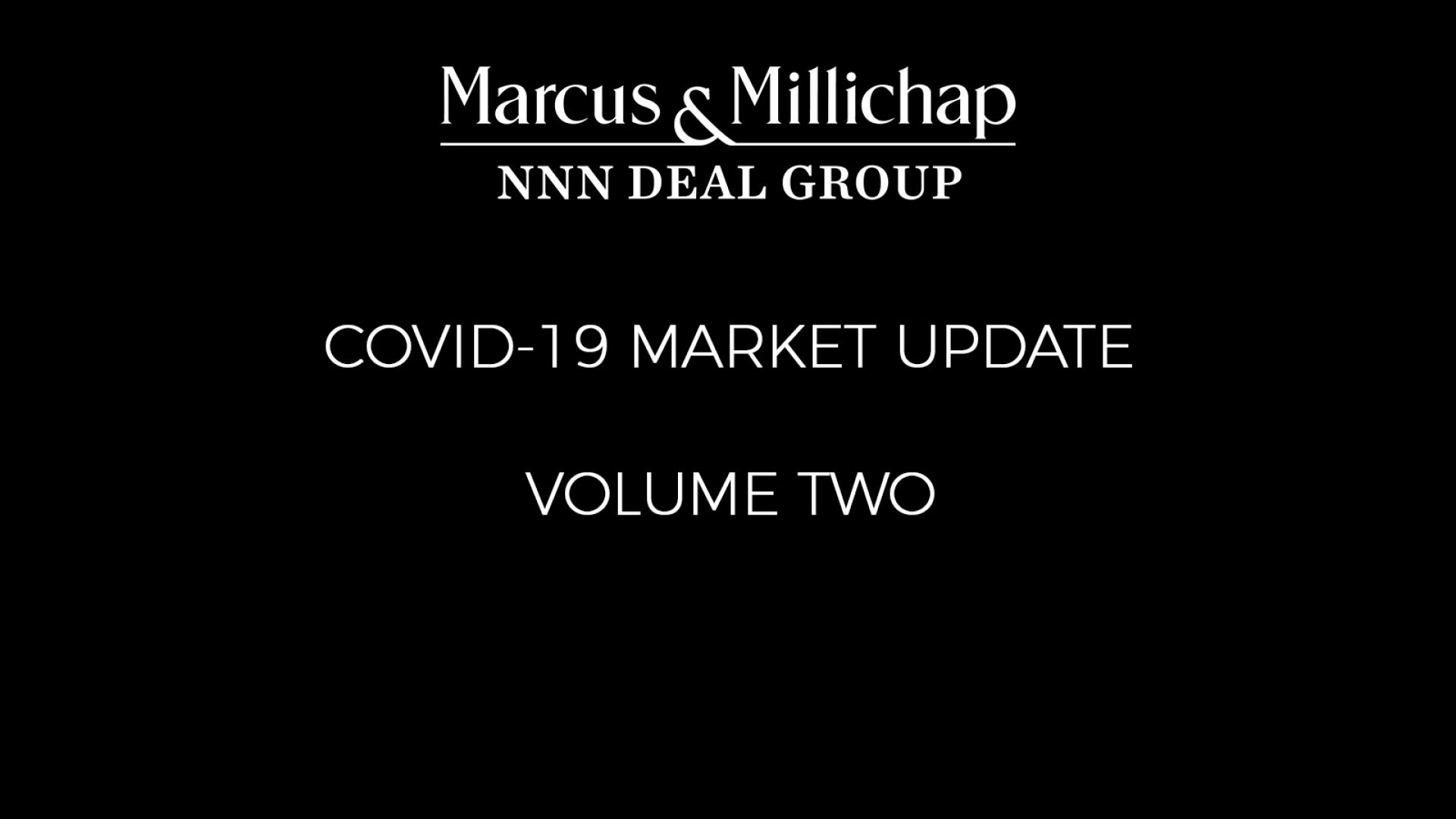1. CORONAVIRUS IMPACT ON SINGLE TENANT NET-LEASED INVESTMENTS
With the volatility in the stock market and stomach-turning plunges continue, investors find themselves flocking to “sleep at night” investment alternatives, that offer better returns than current bond yields. Single-Tenant Net Leases (“STNL”) with longer-terms and nationally recognized brands may be the solution to weather a downturn.
QSRs (Quick Service Restaurants) are still functioning, even with in-house dining restricted, by utilizing drive-throughs, carry-out, or delivery services. Drugstores remain open as essential businesses. Some drugstores will soon set up testing centers in-house. Grocery stores are seeing higher than average demand and are having difficulty keeping shelves stocked. Many grocers are hiring hundreds of new employees to keep up with the increased activity. Pet stores, such as Petco and PetSmart, are open and are doing increased business.
Cap rates remain stabilized. The market pulse continues to be nimble and is flexing with the current circumstances. This is not to say that there won’t be some collateral fall out the longer this crisis continues, but for the immediate future all indicators remain consistent.
POTENTIAL ISSUES TO TRACK
a. Commercial backed loan rates are beginning to tick up as lenders become more conservative given the market uncertainty, and the previous wave of applications that inundated the market when the Fed dropped rates.
b. New construction in all markets may slow, both due to market uncertainty as well as Covid-19 social distancing and Safe in Home Orders continue to remain in effect.
2. FORCE MAJEURE CLAUSE AND YOUR BOTTOM LINE
Many national tenants have Force Majeure (Acts of God) clauses in their leases. In times of national crisis caused by conditions beyond anyone’s control, like earthquake’s, war, and Covid-19, tenants have options should they be unable to function or conduct business as usual.
Some leases do not allow for rent abatement (forgiveness) during these times, and others do. Many clauses will make up for the abatement period at the back end of the lease, tolling the term of the lease during the period of the crisis.
Whatever the case may be, many tenants in the current national crisis are unable to function normally and their revenue is way down. They are asking their Landlords for reductions or waivers in rents. The trend we’ve been witnessing is a ninety-day rent abatement request for stores that have not been declared essential retailers, or those that are not designed to change their business model quickly. We’ve seen this mostly in casual dining that has not, in the past, relied on take out or delivery.
It is important to keep in mind that even those retailers that are open to the public have had to modify their model and reduce staff. As long as the Stay in Home orders remain in effect for most cities nationwide, daily traffic will also be reduced. So, even if a particular tenant is opened during this time, they may request some concessions in order to keep their doors open while revenue takes a hit.
3. LANDLORD OPTIONS
As mentioned above, even when a Force Majeure clause does not exist in a lease, many tenants are requesting 90 day rent abatements.
Here are a couple of landlord options:
a. Give a 2-3 month rent deferral. But have the deferred rent repaid over 12 – 24 months commencing January 2021, or
b. Give a 2-3 month rent deferral, but extend the lease for three additional months, so you ultimately collect the deferred rent. In either case, the landlord can decide if he wants to charge interest on the deferred amount, or not.
c. As a last resort, if there is no other viable option, then give the rent abatement, so you don’t lose the tenant.
In these unprecedented times, we must all be flexible and stand together as we navigate this crisis. We, at NNNDeal Group, stand ready to assist you with your real estate investment decisions. Feel free to call us to discuss your needs or questions.
Stay safe and stay well,
Lior Regenstreif









